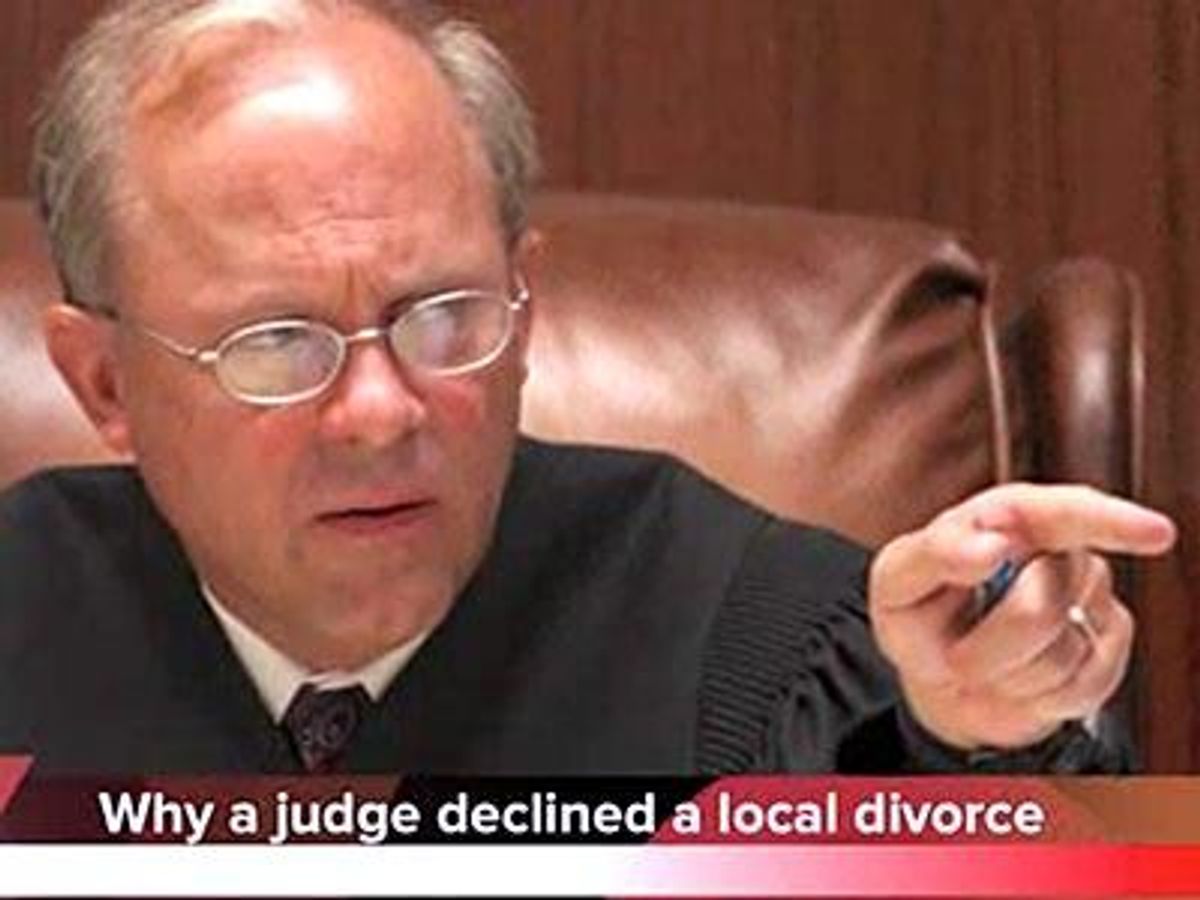A judge is refusing to grant a couple a divorce, and he's citing to June's Supreme Court decision on marriage equality as one of the reasons.
Jeffrey Atherton, the chancellor of Hamilton County in Tennessee, concluded that the marriage of Thomas and Pamela Bumgardner was not "irretrievably broken," after four days of testimony that included seven witnesses and 77 pieces of evidence.
The couple, who are in their 60s and have no children from their 13-year marriage, claimed they had irreconcilable differences when they filed for divorce in September of last year, reports the Chattanooga Times Free Press.
However, this evidence was not enough proof for Atherton, who claimed the U.S. Supreme Court decision in Obergefell v. Hodges, which legalized same-sex marriage across the country, failed to explain "when a marriage is no longer a marriage."
In his ruling, the judge reasoned that since the federal court decided how every U.S. state should conduct marriage, it should to the same for divorce.
"The conclusion reached by this Court is that Tennesseans have been deemed by the U.S. Supreme Court to be incompetent to define and address such keystone/central institutions such as marriage, and, thereby, at minimum, contested divorces," he wrote.
The ruling comes in the midst of the widely publicized news of the jailing of Kim Davis, a county clerk from Kentucky who is refusing to issue marriage licenses to same-sex couples.
But many legal experts have dismissed the broader implications of Atherton's ruling, calling it a case of sour grapes.
"He is just making a statement," said Regina Lambert, who represented Tennessee plaintiffs in Obergefell. "I just think change is hard for people."


















































































